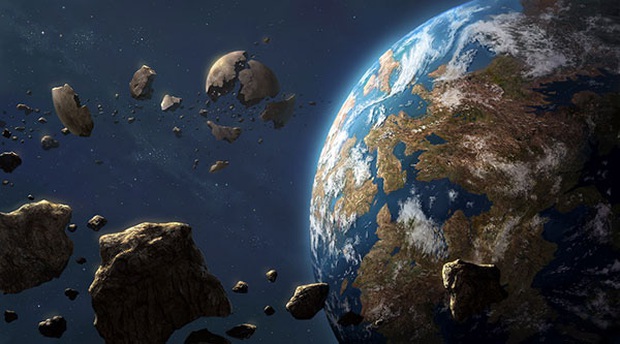Located about 384,000 km from Earth, the moon is our planet’s companion. The moon is slowly moving away from us, about 3 cm / year. So what if he disappears?
First, we need to know what caused the destruction of the moon. If Earth’s natural satellite were to be smashed to pieces, perhaps by a collision with a giant asteroid, for example, thousands of debris could be observed floating in space and reflecting sunlight.
One of the first consequences is that we cannot see the phases of the moon at night. Instead, we’ll see a glittering cloud of debris, perhaps much brighter than a full moon, making the night brighter.
Some moon fragments can also strike the earth, causing significant damage due to their size. Another possibility is that a giant residue cloud forms, obstructing the passage of sunlight. If this happens, Earth’s climate changes like a nuclear winter. Plants will die slowly, robbing other living things of their good, including photosynthesis – taking in CO2 and giving off oxygen.
As for gravity on Earth, it probably won’t change much since the moon has existed.
What if there is no moon?
If the moon were to be completely destroyed, its mass would not affect Earth’s gravity. However, the tide will be completely reversed. Tides will always happen, but it will work depending on the severity of the sun, peak tides happen at noon everywhere and happen every day. The tide level is lower than when the Moon existed. The moon helps the earth to rotate on its axis in a fixed way, so if the moon disappears, the earth will shake more, causing geological changes that make earthquakes more likely or volcanic eruptions on the rise.
What is most worrying is in the long term, especially with regard to the axis of rotation of the Earth. Experts say the moon has a very important role to play in preventing it from going out of orbit.
There is a good chance that when the Earth is moonless, the moon fluctuates a lot, like Mars. The oscillation of the red planet is so frightening that it can cause dramatic changes in climate cycles. If the same thing happened on Earth, it would likely make the seasons extremely harsh and unstable. Earth would then be a less habitable planet.
Without the moon, the tilt of the Earth’s axis could change from its current oscillation (around 22 to 25 degrees) to an offset of 0 to 85 degrees! The zero tilt makes the seasons disappear, while the Earth tilts 85 degrees to one side. If this happens, it will increase global warming.



